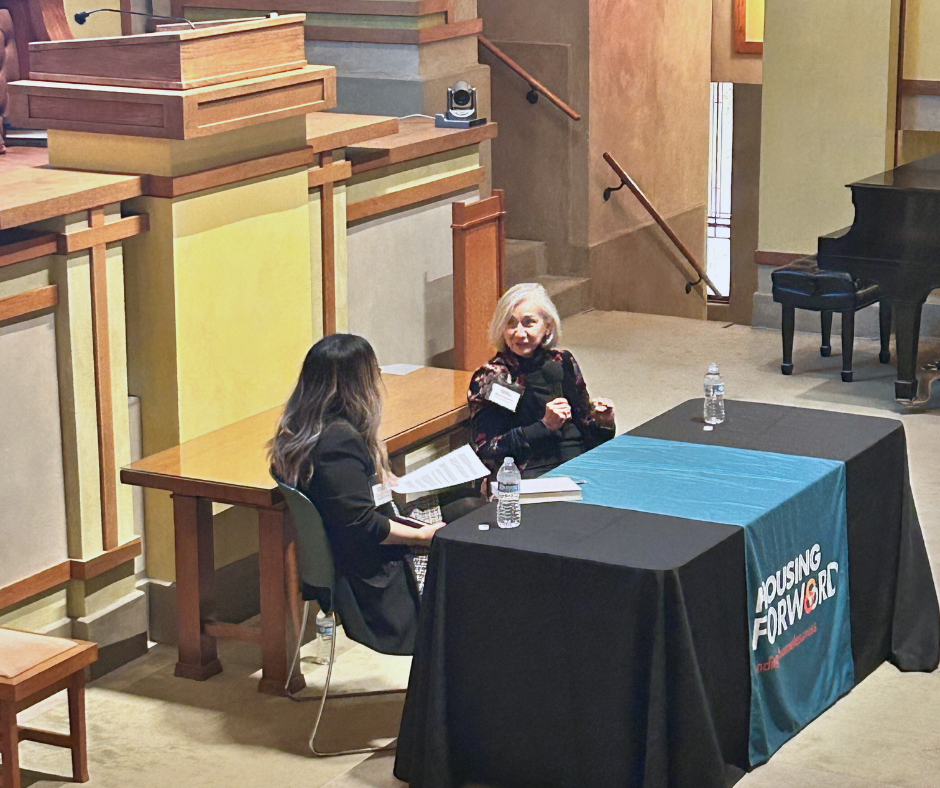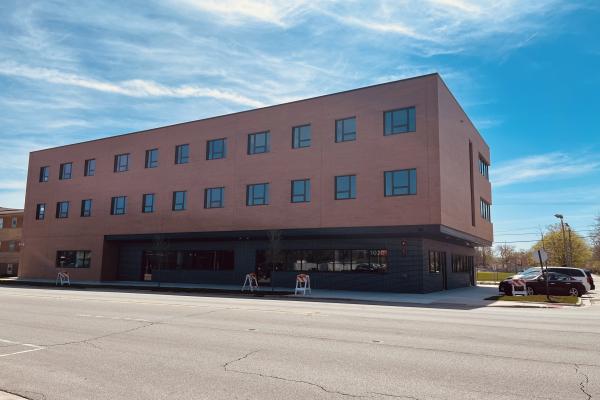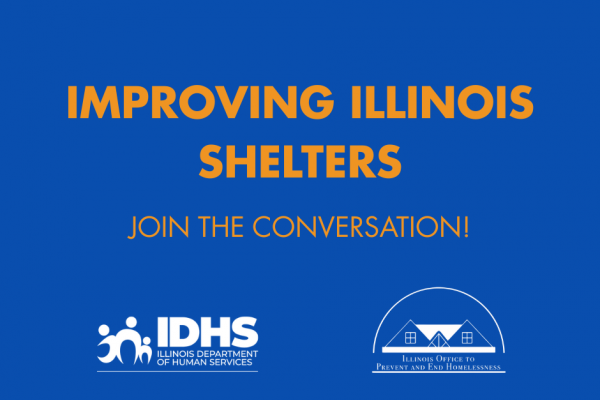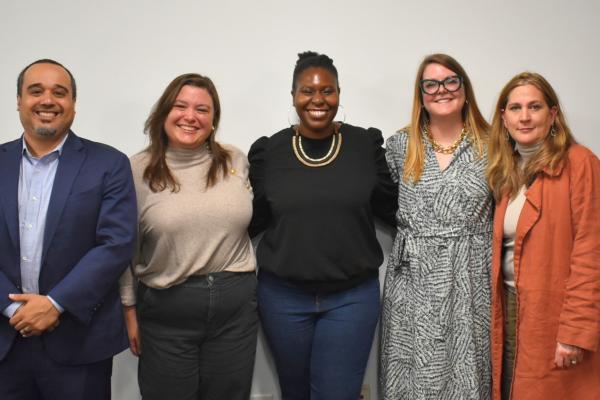And Housing For All Event Recap

On Thursday, October 23, we hosted our third community series event, And Housing For All: An Evening with Maria Foscarinis at Unity Temple. Author and legal advocate Maria Foscarinis spoke with WBEZ reporter Esther Yoon-Ji Kang about her new book And Housing For All: The Fight to End Homelessness in America. Thank you to Unity Temple for hosting and Dandelion Bookshop for selling copies of Maria’s book at the event. Read on for highlights from the conversation and to access a recording of the event.
The McKinney Vento Homeless Assistance Act
Maria Foscarinis: “This legislation was actually part of a much bigger piece of legislation that I and other advocates had put together to address homelessness. This was when homelessness was first exploding in the early and mid 80s. It was a national issue and a huge crisis. We had developed something called the Homeless Person Survival Act which had three parts: Emergency, Prevention, and Long-Term Solutions. What ended up becoming law was part one, the Emergency part. It was funding for emergency shelters primarily. It also created a couple rights, like the right for homeless children to go to school and the right to use vacant federal properties to build shelters.
Getting it enacted during the Reagan era was extremely difficult and we had to focus on the Emergency part as a matter of political need to get it enacted. No one thought that this would be the entire solution, this was just a first step.
Esther Yoon-Ji Kang: What has been the enforcement of this act? Can you talk a little bit about the legacy?
Foscarinis: Sure. We had to file three lawsuits withing the first few months of the enactment of the legislation because this was an administration where the president signed the law reluctantly. The administration was not going to be eagerly implementing the law. Before this legislation, President Regan had made many cuts to social services.
Myths and Misconceptions
Foscarinis: Reagan said homelessness was a lifestyle choice, that people choose to be homeless. That’s extremely destructive and something that persists to this day. This is a personal problem, not a systemic problem. It’s become a bipartisan myth.
Kang: In your book, you have so many stories from people who have experienced homelessness and when you hear their stories, you realize that it could be me tomorrow. If my husband is laid off or if I am laid off, even with privilege and safety nets. It can start with a job loss or a health issue. What are some myths or misconceptions about people experiencing homelessness?
Foscarinis: There’s a big myth that people who are homeless are primarily mentally ill or abuse substances. There is a population who do have those issues, but they are not the majority. We have to remember there are people who are not homeless who also have these issues. That’s a myth that really distracts us from the real issue.
Housing as a Human Right
Foscarinis: Housing is in fact a human right. I didn’t know this when I first started working on this issue. It’s something I learned about in the mid-90s by going to international conferences and hearing from advocates in other countries about it. The human right to housing is embedded in the basic human rights instruments which the United States was actually instrumental in drafting and getting adopted by the world community.
The Universal Declaration of Human Rights… ensures not just the protection of civil and political rights, but also economic and social rights like the right to housing, to health care, to food, to work that pays a living wage. It views these as inseparable, you can’t have one without the others.
When we [Foscarinis and other US housing advocates] learned about this, we thought, “well if housing was a right, this would help a lot in our work!” We had been making headway with this; in fact, the Biden administration embraced the idea that housing is a right.
Our Speakers
Maria Foscarinis has advocated for a federal response to homelessness since the early 1980s when the crisis was just beginning to explode in the United States. In 1987 she played a pivotal role in advocating for the first- and still only- major federal legislation addressing homelessness, now known as the McKinney-Vento Homeless Assistance Act. Maria is also the founder of National Homeless Law Center, which has won landmark legal and policy victories, including establishing education rights for homeless children, converting vacant properties to housing, and combatting the criminalization of homelessness. She has also helped lay a foundation for the recognition of housing as a human right in the United States.
She has been named a Human Rights Hero by the American Bar Association, and is a recipient of the Katharine and George Alexander Law Prize from Santa Clara University School of Law, the John Macy Award from the National Alliance to End Homelessness, the Public Interest Law Award from the Public Interest Foundation at Columbia Law School, and a Rockefeller Foundation Practitioner Residency in Bellagio, Italy. She is also an adjunct professor at Columbia Law School.
Esther Yoon-Ji Kang is a reporter on the Race, Class and Communities desk at WBEZ. Prior to arriving at WBEZ, she was a breaking news producer, reporter and editor. Her work has appeared on NPR’s All Things Considered and Morning Edition, Marketplace and Here and Now, as well as various newspapers and web publications.
For Media Inquiries Contact
Libby Foster
lfoster@housingforward.org
708.338.1724 ext 210


